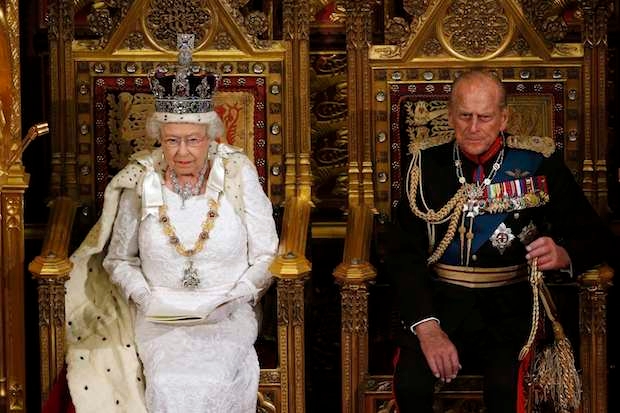This is a preview of the leading article in the new Spectator, out tomorrow:
It would be easy to look at the alluring photographs of Prince Felipe of Spain and his young family stretched over their garden sofa and wonder whether the United Kingdom should join the current fad for abdication among European royals. In stepping aside in favour of his son, Juan Carlos joins Queen Beatrix of the Netherlands and Albert II of Belgium in having given up the throne over the past year, while Pope Benedict XVI became the first pope in 600 years to resign his post.
With a little nudge from her advisers in grey suits might our own Queen bow out to a graceful retirement and make way for her son, or better still her grandson, and the monarchy become the living embodiment of what Tony Blair used to like to call when he was still in his early 40s a ‘young country’?
It is something strongly to be resisted. For all the skill of Prince Felipe’s PR agents and photographers, the best advert for monarchy this week is the sight of Elizabeth II doing as she has done countless times during her long reign: making the short journey from Buckingham Palace to the House of Lords to speak at the state opening of Parliament. Here, in one dignified octogenarian and the sense of duty which she exudes, is encapsulated the advantage of monarchy over republic.
Anyone tempted to giggle at the pageantry misses the point. The country has been led by 12 prime ministers since the Queen began her annual or mostly annual visit to Westminster. The Commons has been cleared-out by 15 general elections, many of them angry and divisive affairs. Yet the head of state to whom has fallen the duty of reading out forthcoming government bills, has remained constant throughout. She is a humble reminder to our here-today, gone tomorrow politicians that they are not bigger than the British state, that popularity in an election does not turn Britain into their personal fiefdom, nor the British constitution into their plaything.
It is a tribute to the Queen’s personal conduct, as well as to the robustness of parliamentary procedure, that while she must have announced many government bills over the past 62 years through gritted teeth few of us have any idea which ones. It is sometimes asserted that the Queen must by inclination be a Conservative, to judge by her love of country sports and waxed outdoor wear. But are we any the wiser what she really thinks on free schools, regulation of markets, the poll tax, nationalisation and privatisation? If there is a footman somewhere who has heard her expound on such issues he has kept it to himself.
The same, of course, cannot be said of her son, who at various times has appointed himself as the people’s spokesman on architecture, the environment and of late even dabbled in foreign affairs. We cannot know how Prince Charles would have behaved had he become king at an early age. We would like to think that he would have exhibited the same impartiality of his mother. But there is at least some probability that he would have shown less self-restraint.
To bring the second Elizabethan age to a premature close would be a folly, and not just because it would bring to the throne a man who seems less temperamentally suited to the role as monarch. British history has always tended to viewed in periods relating to the monarch.
Georgian, Victorian, Edwardian; all mean something in our collective consciousness. The reign of Elizabeth II which, health-willing, will become the longest in history in little more than a year’s time will arguably be remembered as the greatest of them all. Unlike Queen Victoria’s it has not of course been an era of world domination, but as a period of peace and prosperity it is unsurpassed.
The monarchy, which might seem on the face of it to be an anachronism at odds with the spirit of democracy and meritocracy, can hardly have been higher. It is hopeless trying to compare the current minor clamour for republicanism with the suppressed urge for it during ages when to express it might have cost you your head, but no poll has ever put it at a level which would even remotely provide a platform to win a referendum on the subject. The monarchy is, at a time when our parliament, courts, churches, banks and many others have had their reputations battered, just about the most popular institution we have.
The ultimate test of our political system, however, comes not from inside but from the outside. The multitudes of wealthy foreigners who have made London the most sought-after city on the planet in which to live are not coming for our weather, our landscape or our architecture, pleasing though each of those things may be in parts. They come to live here because Britain is just about the last country on Earth where you can imagine tanks rolling up outside the parliament building, where you can imagine citizens being jailed for their beliefs or being slaughtered for their wealth.
The stability of our political system brings with it a huge dividend which no-one has yet thought to calculate. It attracts money and talented individuals in large measures. Queen Elizabeth II is a large part of that stability and, though old age of course brings it frailties, we hope that her reign will last a long while yet.






Comments